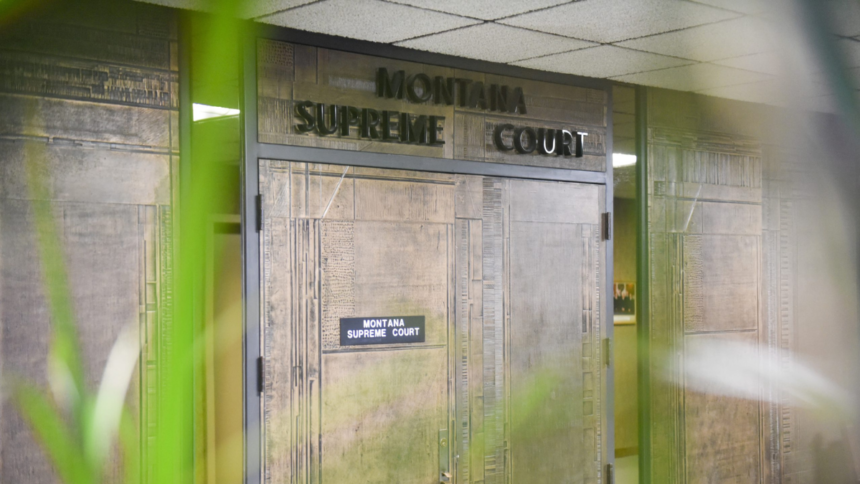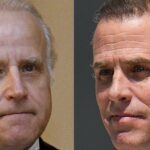The primary elections on Tuesday evening saw the four most prominent candidates for the Montana Supreme Court advancing to the next stage.
After almost all ballots were counted, Cory Swanson, Broadwater County Attorney, secured 46% of the votes, leading the primary for chief justice of the Montana Supreme Court. Following closely behind was former federal magistrate Jerry Lynch with 37% of the votes. In the race for the second open seat on the court, eastern Montana district court Judge Katherine Bidegaray emerged victorious with 48% of the votes, while Flathead County District Court Judge Dan Wilson claimed the second spot.
Montana Supreme Court primaries are nonpartisan, and the top two candidates in each race move forward to the general election in November. Swanson and Lynch defeated Doug Marshall, an attorney from Carbon County, while Bidegaray and Wilson surpassed former Columbia Falls Republican lawmaker Jerry O’Neil.
The successful candidates from each primary—Swanson and Lynch in one race, and Bidegaray and Wilson in the other—will now turn their attention towards each other as they compete for the open seats on Montana’s high court, a body that plays a crucial role in making politically significant decisions and has faced intense partisan scrutiny, particularly from Republicans.
“Julie and I want to express our sincere gratitude to the thousands of Montanans who have backed this campaign and led us to victory today,” stated Swanson on Tuesday evening. “Montanans have clearly shown their preference for impartial justices on the Montana Supreme Court. I promise Montana voters that I will base my rulings on facts and law in each case, not on politics.”
In a video shared on Facebook, Bidegaray expressed her thanks to supporters for their trust in her and their commitment to a fair judiciary.
“As we move forward united in our belief in the fundamental rights offered by our Constitution—the right to privacy, equal education, and a sustainable environment—we must all continue to work together to ensure that our courts remain fair, unbiased, and dedicated to justice for all Montanans,” Bidegaray emphasized.
Partisan interests have already aligned themselves with specific candidates in these elections.
Last month, the National Democratic Redistricting Committee and a Planned Parenthood political committee announced a joint expenditure of $5 million on state Supreme Court elections nationwide, including in Montana. Although the organizations did not specify their endorsements, generally Democratic-affiliated groups like the Montana Federation of Public Employees and Montana Conservation Voters have supported Lynch and Bidegaray, whereas Swanson and Wilson have garnered backing from prominent conservatives like Governor Greg Gianforte. The Governor, along with his wife Susan, has donated several hundred dollars to both candidates’ campaigns.
“Unfortunately, the national Democratic Party is undermining the nonpartisan nature of our Court by supporting my opponent’s campaign,” Swanson remarked in his statement on Tuesday night. “Montanans deserve an impartial Supreme Court free from partisan interference. Join our efforts to protect the integrity of our judicial system.”
The Republican Party, criticized for its early and open involvement in the nonpartisan judicial races of 2022, has also entered the scene. Montanans for a Fair Judiciary, a PAC associated with GOP strategist Jake Eaton, spent around $25,000 on mailers supporting Wilson and Swanson in May.
The primary funding source for this group is $30,000 from another Eaton-affiliated organization, the Montana Judicial Accountability Initiative, which received $50,000 from the state GOP last month along with $35,000 from Spirit for Montana PAC. Contributions to this committee have come from the state GOP, the state chamber of commerce, and tobacco company Reynolds American.
This week’s ballot also included primary races for clerk of the Montana Supreme Court, a partisan official responsible for managing court records and legal documents.
In the GOP category, incumbent Bowen Greenwood narrowly defeated challenger Jason Ellsworth, the current president of the state Senate. With most precincts reporting, Greenwood secured 53% of the votes compared to Ellsworth’s 47%.
“Serving the people as your elected Republican clerk of the Montana Supreme Court has been the greatest honor of my life,” Greenwood expressed in a statement. “I am deeply humbled and thankful for the unwavering support of my friends and supporters. I am honored that Montana Republicans chose me for another term.”
Ellsworth will now complete his Senate term.
On the Democratic side, attorney Erin Farris-Olson emerged victorious against U.S. Navy veteran Jordan Ophus, capturing over 80% of the votes. Farris-Olson has been critical of the Republican candidates’ overt partisanship.
Ellsworth has been a vocal advocate of Republican criticisms towards the Supreme Court and recently established a select legislative committee to investigate the court’s recent unfavorable rulings. Greenwood campaigned on the promise to continue supporting Republican attorneys and the office of Republican Montana Attorney General Austin Knudsen in their legal endeavors concerning abortion restrictions and other conservative priorities.
“Today, we celebrate Montanans’ commitment to impartiality in the court,” Farris-Olson shared on Facebook. “The campaign to restore judicial integrity to the clerk’s office begins now.”
LATEST STORIES
Helena voters split over fire station, public safety levy
Helena voters appeared to approve, by less than 100 votes, the construction of a new fire station in the city but rejected a public safety tax that would have funded, among other things, the salaries of new firefighters, as per unofficial results.
Brown wins GOP primary race for Montana state auditor
Current Public Service Commission President James Brown defeated GOP challenger John Willoughby in his campaign to become Montana’s top insurance watchdog.
Missoula voters approve fire and emergency services levy
Initial primary election results suggest that Missoula’s fire and emergency services levy is on track to pass. The levy received 63% approval, with 12,393 “yes” votes compared to 7,348 opposed votes.





